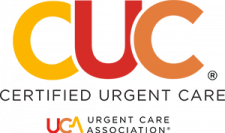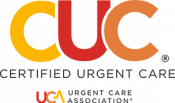According to Food Allergy Research & Education, approximately 32 million people have food allergies. While some food allergies can be fatal, most allergic reactions do not require a trip to urgent care. In fact, most of the time these symptoms can be safely managed at home. The most common food allergies include cow’s milk, eggs, tree nuts, peanuts, shellfish, wheat, soy and fish.
Allergic rhinitis affects between 10-20 percent of people in the United States and is one of the most common allergic conditions. It’s an inflammation of the nasal passages caused by an allergic reaction to airborne substances like pollen, dust, mold and pet dander and is often treatable from the comfort of your home.
A healthy immune system helps recognize foreign substances and develops antibodies so the next time you’re exposed they can be eliminated from your body.
Many substances that enter the body are harmless and typically don’t cause an allergic reaction unless you have allergies. If you have seasonal, food, insect or plant allergies, allergen exposure can cause your immune system to overreact.
People who are at risk of a severe allergic reaction symptoms often carry an EpiPen® with them at all times. Foods, insect bites, pollen and other airborne substances can all lead to a severe allergic reaction. EpiPen is an adrenaline auto-injector that contains a chemical known as epinephrine, it is used to treat life-threatening allergic reactions because it helps increase blood flow in the veins. Epinephrine also helps relax airway muscles so your breathing can return to normal.
Do not depend on inhalers or antihistamines when you’re experiencing any severe allergic reaction symptoms. Use epinephrine. It is the only medication that can reverse the life-threatening symptoms of anaphylaxis. If you do not have immediate access to epinephrine, please go directly to your nearest emergency room.
Severe allergic reaction symptoms that need urgent care
It’s important to recognize severe allergic reaction symptoms so you know when to seek urgent medical care. A severe, potentially life-threatening allergic reaction can occur suddenly and get worse very quickly, so if you or a loved one exhibits any of the following symptoms, go directly to your nearest urgent care:
- Lightheadedness or feeling faint
- Breathing difficulties (e.g., fast, shallow breathing or wheezing)
- Elevated heart rate
- Confusion or anxiety
- Sudden drop in blood pressure
- Nausea or vomiting
- Hoarse voice
If you or a loved one exhibits any of these life-threatening symptoms, go directly to your nearest emergency room:
- Loss of consciousness
- Blue skin or lips from poor circulation
- Tongue swelling or difficulty swallowing
Other times you should visit urgent care for allergic reactions
If you’re experiencing any new allergic reactions that are making you uncomfortable, you should have them checked out at a local urgent care. Even though these may not be life threatening, it’s a good idea to find out what’s happening so you can get the treatment you need to feel better and know what to do if (or when) it happens again. Visit urgent care if you experience any of the following symptoms and you’re not sure of the cause:
- Skin rash
- Hives (itchy red spots on the skin)
- Nasal congestion
- Itchy throat
- Itchy, watery eyes
- Breathing difficulties
- Swelling in the mouth or face
Seasonal allergies can also act like a cold and cause congestion, a runny nose, sneezing and coughing, but it’s important to recognize the differences and stay alert for worsening symptoms of anaphylaxis, especially when you’re exposed to new foods, plants or environments.
The three key differences between the common cold and allergies are body aches, fever and itchy, watery eyes. Allergies will never cause a spike in fever and are much more likely to cause itchy, watery eyes, while a cold is the most likely culprit of general aches and pains.
For more information about severe allergic reaction symptoms or to seek immediate medical care, visit Thibodaux Regional Urgent Care – Thibodaux. We welcome walk-in appointments 7 days a week from 9 a.m. – 8 p.m.
Urgent care facilities can effectively diagnose and treat mild to severe allergic reaction symptoms that are not life threatening. However, if you’re experiencing a life-threatening allergic reaction, please dial 911 and go directly to your nearest emergency room.




